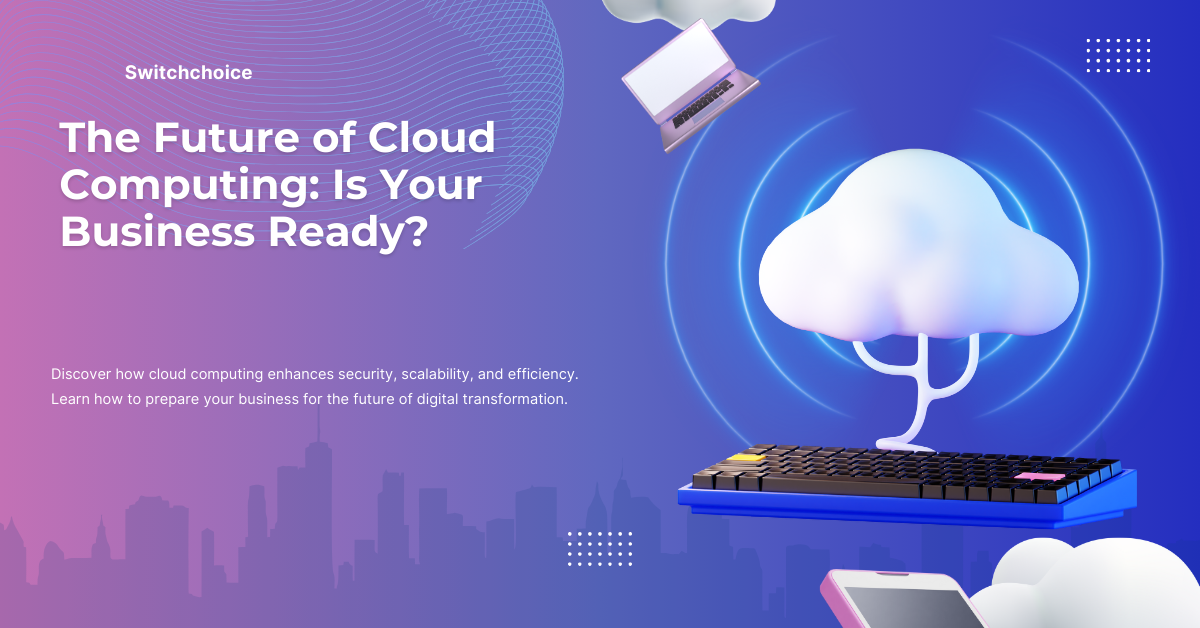Cloud computing is changing how businesses work in the digital world. Companies are turning to cloud based solutions for flexibility. Traditional IT systems can’t keep up with business demands. Cloud gives you security, scalability and cost control. So are you ready for this change?
As cloud computing moves fast it brings opportunities and challenges. Cybersecurity and regulatory compliance must be managed. You need to assess your current infrastructure and team readiness. A well thought out plan is needed for a smooth migration. If you move fast you can get a market advantage.
Scalability and Flexibility
Cloud lets you grow or shrink as needed. No need to upgrade expensive hardware. You can add storage and processing power quickly to match business needs. Cloud providers offer flexible pricing to help you control costs. This flexibility means efficiency and business growth.
From small start ups to large corporations cloud computing fits all sizes. You can scale your IT without downtime. Rapidly growing businesses can move to more computing power seamlessly. This means continuous operations even during peak periods. A flexible cloud environment means innovation and competitiveness in a changing market.
Advanced Security and Compliance
Data security is a big concern for businesses moving to the cloud. Leading cloud providers have encryption and other security measures to protect your data. Regular security audits ensure compliance to industry regulations. Features like multi-factor authentication adds an extra layer of security. Choose a trusted cloud provider to protect your digital assets.
Cloud also has real time threat detection systems. These tools monitor and respond to threats. Compliance with global standards like GDPR and HIPAA strengthens data protection. You can set strict access controls to prevent unauthorized breaches. Secure cloud solutions help you resist cyber threats.
Cost-Effective IT Infrastructure
Cloud computing reduces IT costs on hardware and system maintenance. Subscription-based services mean predictable expenses, so budgeting is easier. Companies don’t need to rely on expensive physical servers. Auto updates and maintenance services mean less downtime and more productivity. This financial flexibility means businesses can allocate resources better.
By not having to upgrade infrastructure, companies save valuable funds. Pay-as-you-go means businesses only pay for what they use. Organizations can invest those savings in core business strategies. Advanced cloud cost management tools help optimize spend. Cloud allows businesses to focus on innovation not infrastructure costs.
Seamless Collaboration and Remote Access
Cloud solutions allow teams to work together from anywhere. Employees can access important files and apps from anywhere. Cloud collaboration tools improve communication and teamwork. Real time data sharing eliminates workflow delays and boosts productivity. Businesses can support a global workforce with secure remote access.
Platforms like Google Workspace and Microsoft 365 makes team collaboration easier. Virtual meetings and shared document access makes project management easier. Cloud based CRM systems improve customer service response times. Real time analytics helps businesses make better decisions. These innovations empower teams and overall business operations.
AI and Automation in Cloud
Cloud platforms have AI and automation for better efficiency. AI tools help businesses to analyze data and make strategic decisions. Automated workflows reduce manual tasks, saving time and effort. Machine learning enhances customer interaction through personalized recommendations. Businesses using AI driven clouds are ahead of the competition.
Automated chatbots improve customer support by answering queries instantly. Predictive analytics helps businesses to anticipate industry trends and consumer behavior. AI powered security detects and responds to cyber threats proactively. Cloud automation means seamless IT operations with minimal human intervention. These innovations drive digital transformation across industries.
Reliable Data Backup and Disaster Recovery
Cloud computing gives businesses robust backup and disaster recovery options. Auto backup prevents data loss in case of unexpected failures. Cloud storage means quick data recovery, minimal downtime. Organizations can recover important files instantly in case of emergency. These features mean business continuity during a crisis.
Distributed cloud servers give extra protection against data loss. Cloud disaster recovery shortens recovery time. Businesses can customize backup according to their security needs. Encrypted backup adds an extra layer of protection. A solid disaster recovery plan means business operations and long term stability.
Trends in Cloud
Edge computing is hot because of faster processing. Hybrid cloud combines the best of private and public cloud. Server less computing makes infrastructure management easier for businesses. Quantum computing will change data processing speed and efficiency. Businesses need to know about these trends to stay ahead.
5G will boost cloud performance for real-time apps. Industry specific cloud solutions are emerging to meet business needs. Sustainable cloud initiatives are gaining traction to reduce environmental impact. Cloud native development platforms speed up software creation and deployment. Businesses must get on board to future proof.
Conclusion
Cloud is transforming the business world, efficiency, security, cost. Businesses need to assess their readiness and choose the right cloud strategy. Stay ahead of the emerging tech and you’ll be ahead for the long term. Businesses that get on early with cloud will lead in the digital economy. The future is for businesses that adapt to the cloud.

